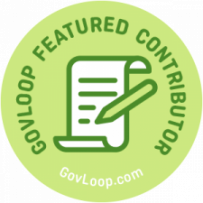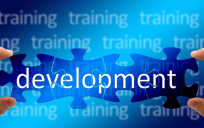 Public servants working for foreign affairs agencies—such as our diplomats and development workers, commercial attachés, foreign agricultural service members and others—are increasingly looking to apply their skills and experiences at home. More and more, we have come to recognize that problems of income inequality, global climate change, health pandemics and governance failures affect every country in the world, including our own.
Public servants working for foreign affairs agencies—such as our diplomats and development workers, commercial attachés, foreign agricultural service members and others—are increasingly looking to apply their skills and experiences at home. More and more, we have come to recognize that problems of income inequality, global climate change, health pandemics and governance failures affect every country in the world, including our own.
Making the transition from working on these issues in the international sphere to the U.S. context can be difficult. In my coaching practice, my clients find that the highly developed skills that served them so well abroad have to be translated to land with U.S.-based employers.
Here is where I find a baseball analogy to be quite helpful. In evaluating prospective talent, baseball scouts are always on the hunt for the “five-tool athlete”—that is, the player that can 1) run the bases; 2) throw the ball for distance and accuracy; 3) field their position; 4) hit for a high batting average; and 5) hit with power. Everyone loves the home run!
The good news for internationally-focused public servants looking for a change is that your skills abroad are in great demand here at home.
Here are some ways to make sure that they don’t get lost in translation.
Perhaps the greatest strength of those who have spent their professional lives working abroad is their ability to live, work and engage others of different cultures. Those skills go beyond language skills and include active listening and appreciation of the distinctness of different cultures. These skills offer an added edge to a job candidate working in an increasingly diverse environment of stakeholders and customers. A recent study found that Maryland’s Montgomery County is home to the top four most diverse small cities in the country based on ethnicity and race, language and birthplace. These places need individuals who are at home working in a second language, putting others at ease and working collaboratively to solve problems.
Strategic planning and program management skills abound in our diplomats and development workers. Their deep expertise will greatly assist domestic organizations contending with the challenges of complex problems and uncertain futures. Systems thinking and other analytical tools of the strategic planner can certainly be applied to the problems faced by local government, small businesses and nonprofits. Likewise, project management—design, implementation, monitoring, evaluation and learning—all travel extremely well from abroad to home.
Strategic communications skills—drawn from diplomatic and commercial efforts to represent U.S. interests abroad—include the ability to define influencers, stakeholders, key officials and other audiences and are valued by U.S. employers. Experience in creating and delivering successful messaging campaigns will be of interest for domestic employers.
Leadership and management skills are always in demand. Many organizations succeed by finding their service or product niche where passion and mission meet a public demand. Those organizations still require seasoned leaders and managers who know how to build and lead teams, resolve conflict, represent themselves to the public and inspire others with an inclusive vision. In short, the whole suite of leadership skills that one develops in service abroad is in strong demand here at home.
Having a “five-tool” resume will still require a successful translation to find the right job. To test your ability to translate an international skillset to the U.S. context, try using the following filters:
- Is my revised resume free of jargon, including acronyms and technical terms? An FSO (foreign service officer) with experience on a FOB (forward operating base) working with INGOs (international non-governmental organizations) may have a hard time getting their point across!
- Can I describe my strategic planning, communications, leadership and/or language skills in a way that can be applied to the mission of the company or institution to which I am applying? Can I communicate my experience in stories that relate to the aims of the organization?
- When I describe to a friend or family member my candidacy for jobs that apply my overseas experience to the U.S. context, does it make sense to them? If not, where do I lose them?
A foreign affairs career brings with it extraordinary expertise and skills through exposure to an extremely broad range of situations and challenges. With skilled translation and communication, their “five-tool” experience working abroad can reach its fullest potential right here at home.
Neil Levine retired from federal service in 2017 after 30 years. He taught Strategic Leadership at the National Defense University’s Eisenhower School for National Security and Resource Policy. Neil is a certified professional coach with over 20 years of experience in advising individuals and groups on setting the conditions for success. Neil has a M.S. in National Security Strategy from the National War College (2008), a Masters in International Affairs from Columbia University (1986) and a B.A. from Earlham College (1983). In 2017, he received his Executive Coaching certification from the College of Executive Coaching.





Leave a Reply
You must be logged in to post a comment.